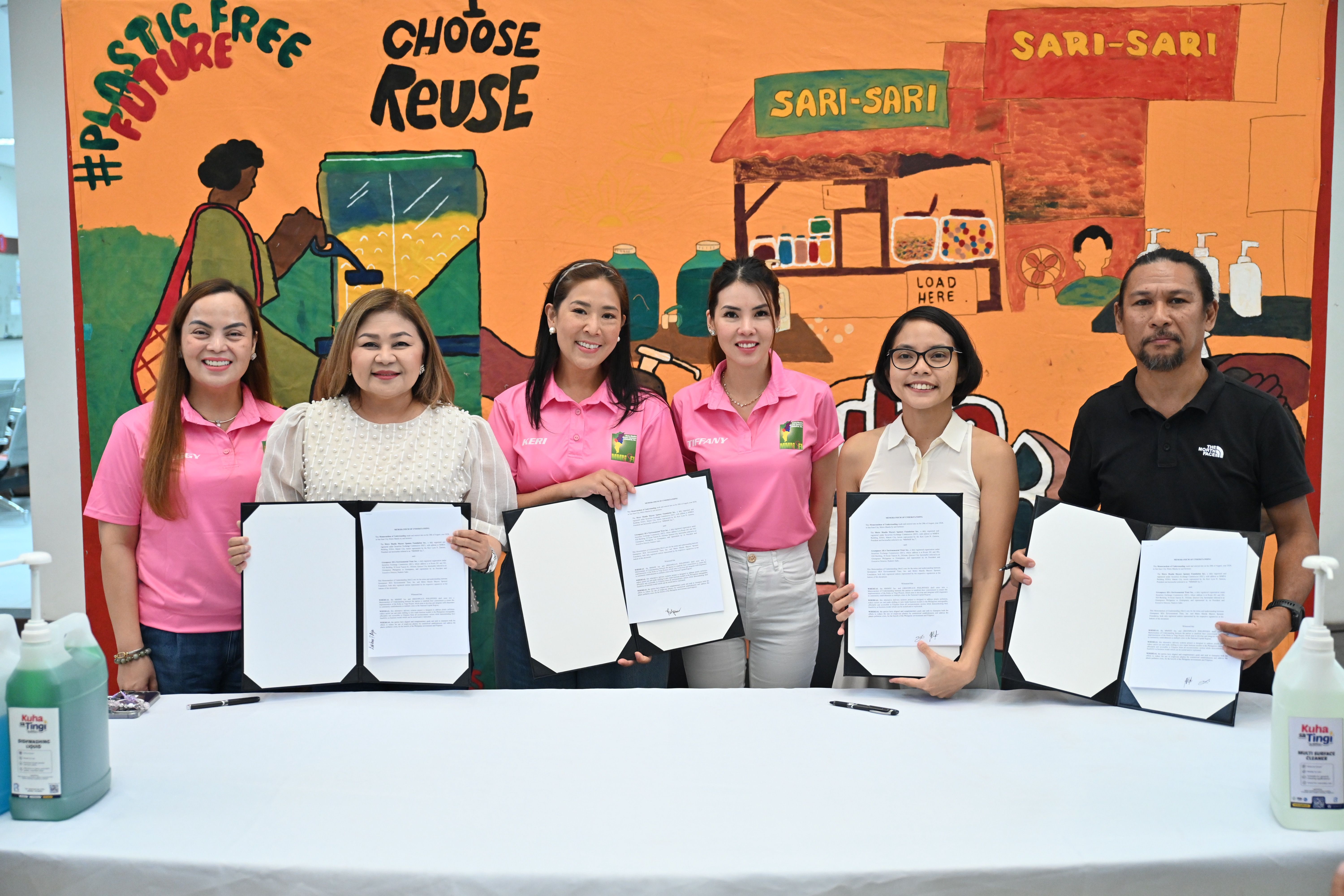Spouses of NCR mayors, NGOs launch 'tingi-tingi' project vs plastic pollution
The Metro Manila Mayors’ Spouses Foundation Inc. (MMMSFI), together with two non-government organizations (NGOs), formally launched a revolutionary program aimed at reducing plastic pollution in the country and increasing public awareness on recycling on Thursday, August 29.

The Metro Manila Mayors' Spouses Foundation Inc., led by Keri Zamora, wife of San Juan City Mayor Francis Zamora, launches the Kuha sa Tingi project in Metro Manila. The MMMSFI also signed a Memorandum of Understanding with Greenpeace Philippines and turned over a donation from DOXA Solutions. Joining her are Trina Biazon, Tiffany Gatchalian, and Peggy Sienes.
Spearheaded by San Juan City's First Lady Keri Zamora, the MMMSFI inked a Memorandum of Understanding (MOU) with Greenpeace Philippines and RIPPLEx for the launch of the "Kuha sa Tingi" program wherein refilling stations will be installed in various sari-sari stores in Metro Manila where the public can purchase different commodities such as shampoo and body wash, dishwashing liquid, liquid detergent, and fabric conditioner in smaller quantities, hence the term "tingi-tingi."
The project aims to reduce the selling of items in plastic sachets which bring harm to the environment.
A total of 48 beneficiaries from different Metro Manila cities were given ‘Kuha sa Tingi’ kits to jumpstart their own refill stations. This was made possible through funds from Greenpeace, MMMSFI, and a donation from the employees of DOXA Solutions.
Muntinlupa City's First Lady Trina Biazon, Valenzuela City's First Lady Tiffany Gatchalian, and Peggy Sienes, sister of Parañaque’s First Lady Aileen Olivarez, also signed the MoU.
"One of the goals of MMMSFI is to improve the quality of life for the people in Metro Manila. This partnership with Greenpeace and RIPPLEx is a good start, and hopefully, a lasting one. Thank you so much for your support. Together, we can make the National Capital Region an even better metropolis for us to live in,” Zamora said.
Biazon, who is also a diver, shared her insights about plastic pollution and how it affects waterways, including oceans.
“It is heartbreaking when we dive and, upon surfacing, we are greeted by cup noodles, diapers, styrofoam, plastic sachets, and all sorts of trash floating in our seas. It’s sad that our oceans are being turned into garbage dumps. That’s why I hope everyone supports ‘Kuha sa Tingi’, because in our own little way, we can help lessen the effects of plastic waste in our oceans," Biazon noted.
According to Zero Waste Campaigner Marian Ledesma, Filipinos are tagged as the top supporters of reducing plastic production among 19 countries Greenpeace had surveyed.
"This goes beyond a problem of waste, as we consider the microplastics in our water, in the air, and in our own bodies. A survey done by Greenpeace in 19 countries showed that Filipinos are 94 percent concerned about the impact of plastics on their loved ones’ health and their own health. These Filipinos want solutions but have no choice; when they go to sari-sari stores, it’s always in sachets, and this is why ‘Kuha sa Tingi’ was created," Ledesma explained.
"The aim of this project is to reduce the use of sachets that cause plastic pollution and to provide the community with affordable and simple alternatives to plastic. The ‘tingi’ culture can be brought back to zero-waste and environmentally friendly practices through reuse and refill," she added.
First launched in November 2022 in San Juan City, the project had initially installed 10 refilling stations in different sari-sari stores in the city.